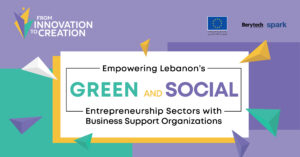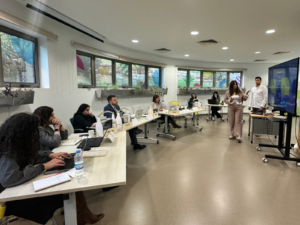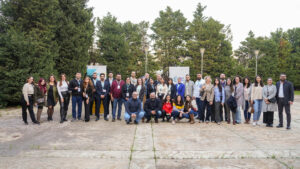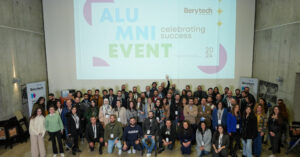
Intellectual Property as a unique selling point
Ideas and creations of a human mind embodied in symbols, processes, inventions, designs literary works or others are what Intellectual Property (IP) refers to. IP laws were created to protect consumers, and reward creators and can therefore be utilized by startups, conglomerates and individuals in order to attain market share by having a time-limited monopoly or market share.
IP acts as a unique selling proposition (USP) of products or services, and helps create a sustainable and defensible differentiator for the underlying owner. However, in order to ensure the core assets (IP) add value and are constructive to the owner, one should bare the below points relating to IP.
When the creative juices are flowing
- Unique offering -Do not copy or imitate at the end of the day, having Intellectual Property assets that are similar to others will harm your company and your consumers as you will get confused. Copying existing IP may lead to disastrous litigation consequences. The number of patent infringement suits is around 5000 per year and can leave a star up with no cash, or even worse with no freedom to operate.
- Disclosure of ideas -If you think you are on to something, refer to Google patents it may be your best friend and savior.
- Avoid using descriptive and generic words when coming up with a trademark as enforcing your rights will be much harder.
- Outsourcing – When you outsource knowledge whether it is manufacturing or creative, make sure that:
- The other party is not able to use or sell the items sold to you to other parties
- The other party assigns all their commercial rights in the products
- If you are manufacturing in another country, think of creative ways to ensure protection there, because it is very common to have a manufacturer become your competitor.
- When more than one party is involved, make sure you have a shareholders’ agreement, outlining roles and responsibilities.
- When hiring talent, make sure you have a work-for-hire clause to maintain your rights.
- If you believe you have an invention, keep a log on who works on it and the underlying contribution, undermining someone’s contribution may have disastrous consequences, and may lead to a loss of exclusive rights to the patent!
When you are putting your strategy
- Evaluate your core assets and decide on the type of IP protection required; Patent, Trademark, Copyright, Industrial Design…
- Include intellectual property within your business plan: protection of IP assets takes time and is capital-intensive, therefore identifying your assets early on and aligning protection with the business plans may be the savior to your company.
- Marketing and IP should go hand-in-hand, if you protect something in red color, make sure whoever is working on marketing/advertising/social media knows that, and abides by that, and vice versa.
- Think of a way where you can use intellectual property to:
- Gather information on competitors – check what brands they have registered, what innovations they are working on, where they are headed and what countries they are moving to.
- Gather market information to understand what areas of the market are more consolidated than others.
- Start a monopoly in the industry.
When you start
- You cannot protect all your intellectual property assets, so focus on the ideas that are core to your business; check the feasibility of the IP investment.
- Avoid using open source software, and in case you do, be aware of the risks and enact a strict protocol on how and when open source may be used by developers.
- When you are sharing your ideas, or assets, and believe novelty is key, try to get a signed non-disclosure agreement or confidentiality agreement. If this is impossible, think of creative ways to protect your assets in a cost-efficient manner, while maintaining your rights.
- There is no finish line when it comes to IP, it should be as agile as your startup is, and should grow at the same pace you are!
It takes a talented and strategic entrepreneur to transfer Intellectual Property rights from a cost center to a competitive value generating asset.
About the Authors
 Bahia Al Yafi is a consultant specialized in Intellectual Property advisory services at Al Yafi IP Group with a focus on Intellectual property consulting and prosecution including brand strategy, and strategic portfolio development and commercialization. She has extensive experience handling local enforcement programs and opposition and cancellation proceedings. Her practice also includes transactional trademark and patent matters, such as licensing agreements, sale and acquisition of intellectual property, commercialization of technologies, private label manufacturing, and settlement agreements, among other IP-focused transactions.
Bahia Al Yafi is a consultant specialized in Intellectual Property advisory services at Al Yafi IP Group with a focus on Intellectual property consulting and prosecution including brand strategy, and strategic portfolio development and commercialization. She has extensive experience handling local enforcement programs and opposition and cancellation proceedings. Her practice also includes transactional trademark and patent matters, such as licensing agreements, sale and acquisition of intellectual property, commercialization of technologies, private label manufacturing, and settlement agreements, among other IP-focused transactions.
Bahia has extensive experience in developing and implementing effective branding and protection strategies for businesses ranging from small start-ups to multi-billion-dollar corporations, with particular expertise in the Middle East. Bahia has led the charge for Alyafi IP Group’s setup of its CSR strategy, and has worked closely with her team to develop key relationships with local businesses, governmental organizations and NGOs to support the firm’s CSR efforts.
Since joining Al Yafi IP Group, Bahia has taken a lead role in several of the firm’s initiatives relating to empowering youth, women and entrepreneurs in the region, in collaboration with several organizations including Berytech, Takamul, Astrolabs, Flat6labs, Injaz, Arabnet, UK Leb Tech Hub and Speed @BDD. Bahia has moderated multiple panels relating to trademark and patent laws in the GCC and has been a key speaker at MARQUES (2017).
Some of her more recent publications include: IP licensing (Marques 2018), IP Valuations (Marques 2017), Trademark litigation law book (Thomson Reuters 2017), and Patent litigation law book (Thomson Reuters 2018)
She is a member of MARQUES (Intellectual Asset Management), International Trademark Association (INTA) (Middle East Advisory Council) and the Licensing Executives Society.
 Tima Hachem is a Manager in charge of the Patent Department within Al Yafi IP group with over 15 years’ experience in intellectual property management, assisting clients with protecting and managing their Intellectual Assets and IP portfolios.
Tima Hachem is a Manager in charge of the Patent Department within Al Yafi IP group with over 15 years’ experience in intellectual property management, assisting clients with protecting and managing their Intellectual Assets and IP portfolios.
She helps inventors and companies navigate the tricky path to obtaining a patent and advises clients on patent infringement and other areas surrounding intellectual property rights. She is also involved in assisting clients in market development, patent valuation and commercialization.
Hachem acquired experience in business planning and technology-driven start-up management while working as IP advisor and trainer for incubators in Lebanon and several Arab countries including Berytech, Takamul, Astrolabs, Dubai Impact Hub, Injaz, UK Leb Tech Hub, Speed, Flat6labs.
In addition, Hachem led the group in setting their CSR strategy, and assisted with developing key relationships with local businesses, governmental organizations, and NGOs to support the CSR strategy especially the startup initiative. She helped inventors and companies navigate the tricky path to obtaining a patent and advised clients on patent infringement and other areas surrounding intellectual property rights.
She is also involved in assisting clients in market development, patent valuation and commercialization. Some of her more recent publications include: Trademark litigation global guide Lebanon & KSA (Thomson Reuters 2013 & 2014), and Patent litigation global guide GCC (Thomson Reuters 2016 & 2017).
She is a member of the International Trademark Association (INTA), and The International Association for the Protection of Intellectual Property (AIPPI).







